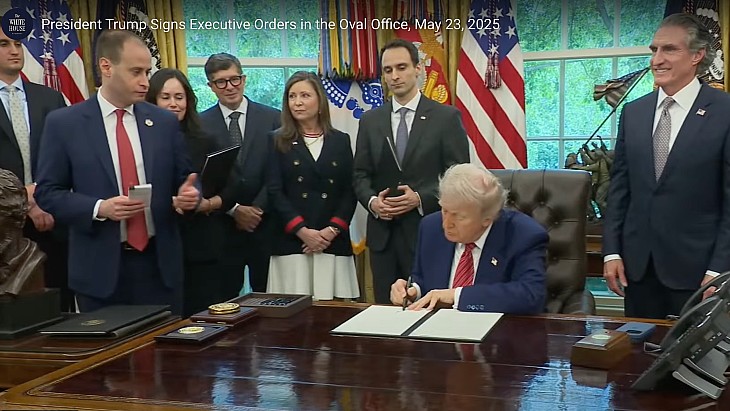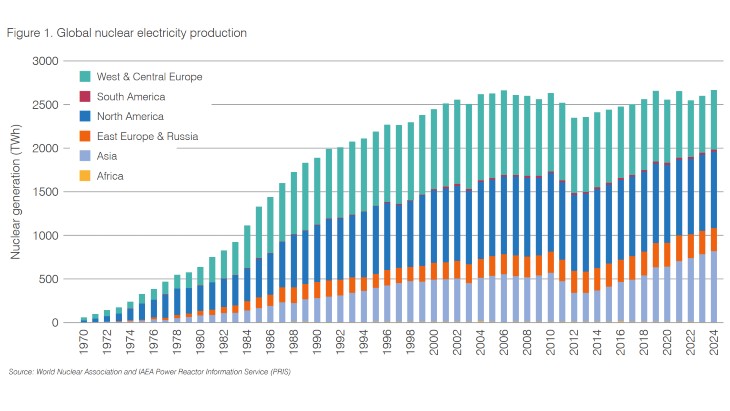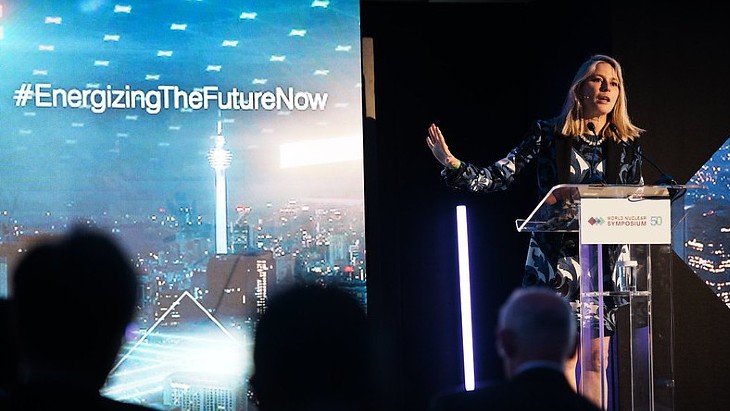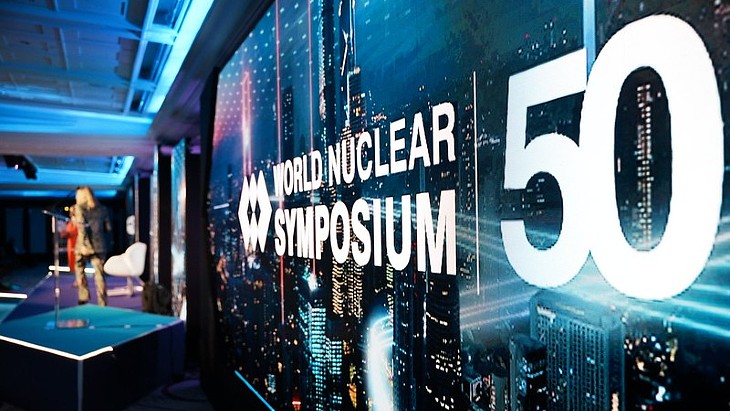Japanese Economy, Trade and Industry minister Akira Amari has concluded a visit to Kazakhstan by signing 24 agreements concerning cooperation on energy. The deals could lead to nuclear power in the country and a boost to the scope of Kazakh uranium products.
Reports in Japanese newspapers indicate that Amari's delegation consisted of representatives of 29 companies, and that 24 agreements were concluded. The meetings, described by Kazinform as 'unprecedented' involved Kazakh President Nursultan Nazarbayev and prime minister Karim Massimov, and covered economic cooperation and strategic partnerships.
Few details of the agreements are public, but the most notable concerns Toshiba, which has agreed to "open discussions on how best to build and promote a cooperative relationship" with state-owned champion Kazatomprom. More specifically, the companies will discuss "a mutually beneficial partnership in the nuclear fuel and nuclear power plant construction business."
A memorandum was also signed between Kazakhstan and Japan for cooperation in training related to light-water reactors. Kazakh and Russian officials have previously mentioned the possibility of a nuclear power plant at Aktau, where a Soviet BN-350 fast breeder reactor once operated. A joint venture also exists between Kazatomprom and AtomStroyExport concerning a possible fleet of VBER-300 pressurised water reactors.
The Japanese moves come as the latest in a series of initiatives to secure a stable and predictable supply of uranium as fuel for its nuclear power plants. The nuclear fuel is coming under increasing demand worldwide, and Japan plans to expand it's use of nuclear power to provide 40% of electricity. Kazakhstan intends to produce around 7000 t of uranium in 2007, about 16% of the world's annual supplies from its base of 15% of the world's uranium resources. Kazatomprom plans to increase that to 18,000 t by 2010.
Moukhtar Dzakhishev, President of Kazatomprom, recently told the World Nuclear Fuel Cycle 2007 meeting in Budapest, Hungary, that his vision for the company would see it move from acting as a supplier of uranium to a full-scope uranium product supplier, providing Kazakh-fabricated nuclear fuel assemblies.
In addition, World Nuclear News has learned that plans are being made to expand the capabilities of the Ulba Metallurgical Plant to enable the manufacturing of nuclear fuel pellets for reactors other than Russian-designed RBMK and VVER models.
An October 2006 agreement would alsosee Kazakhstan participate in an international uranium enrichmentcentre, sited on Russian soil. Ulba already produces refined natural U3O8 and ceramic UO2 powder.
Further information
Kazatomprom
Toshiba
WNA's Nuclear Power in Japan information paper
WNA's Uranium Nuclear Power in Kazakhstan information paper
WNN: Japanese seek confidence of uranium supply
WNN: Japanese companies participate in Kazakh uranium project
WNN: Russia and Kazakhstan internationalize the fuel cycle
Strategic alliance for Kazakhstan and Japan
Japanese Economy, Trade and Industry minister Akira Amari has concluded a visit to Kazakhstan by signing 24 agreements concerning cooperation on energy. The deals could lead to nuclear power in the country and a boost to the scope of Kazakh uranium products.












